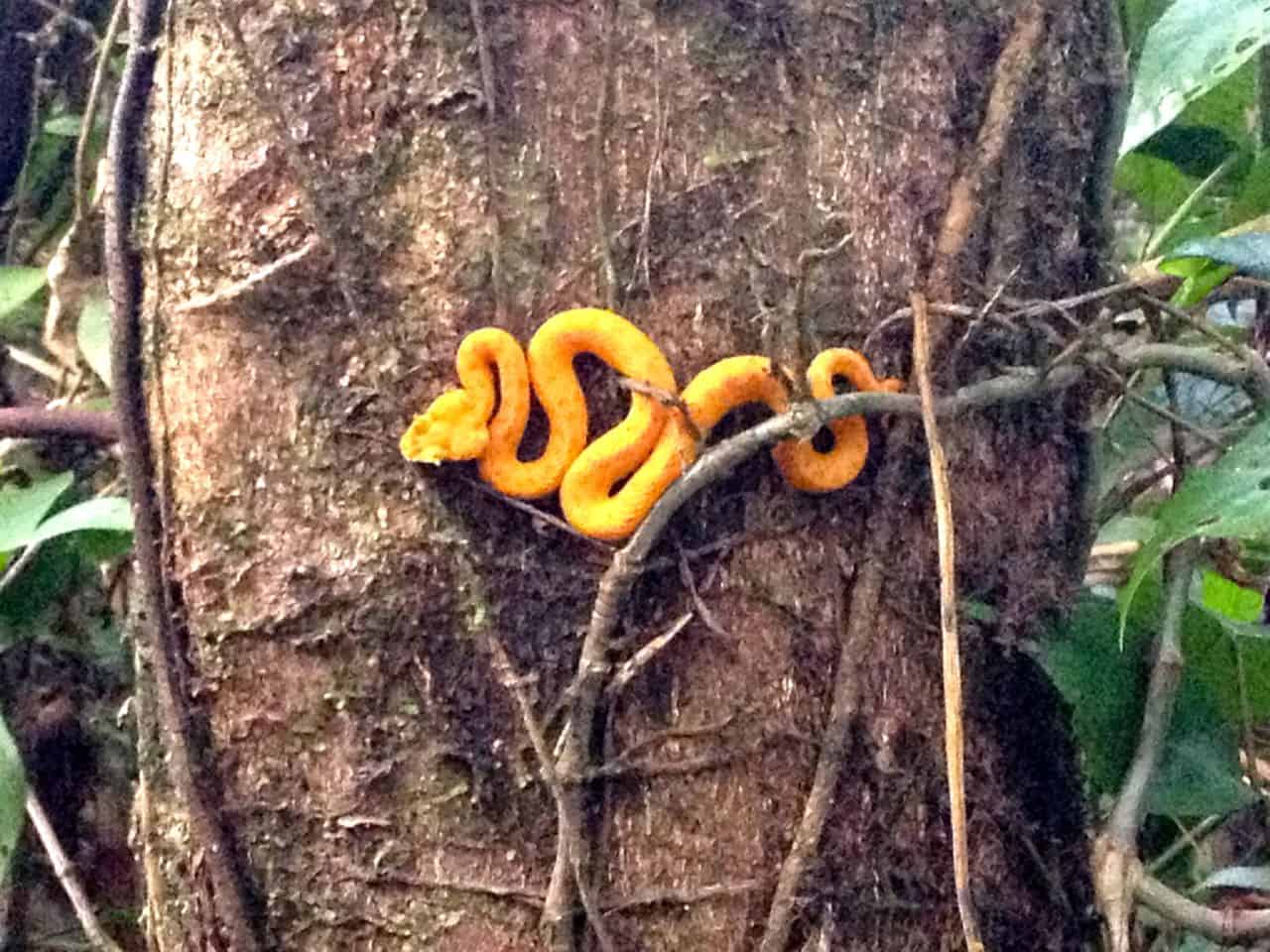Just the mention of snakes makes most of us squirm with a bit of fear, and seeing one face-to-face can push the panic button. This country has its fair share of poisonous snakes, and at this time of the year many are mating, which means more sightings. Gardeners, sooner or later, meet up with serpents around the home.
If it wasn’t for poisonous serpents, gardening would be the safest outdoor activity on the planet, but that’s not the case. Being prepared is the best way to avoid an accidental encounter with the fangs of the serpent. Here are some tips from gardeners around the country on how to deal with these creatures.
Garlic as a Repellent
Curiously enough, the use of garlic as a snake repellent is frequently mentioned. One Tico friend told me he spent years in the banana plantations cutting weeds all day with a machete. He claims he never saw a snake, because he crushed a clove of garlic and rubbed it on his boots before working.
He kept the rest of the clove in his pocket to ensure he smelled like garlic. Garlic spray is popular as a method of keeping the snakes out of the garden – and the bugs, too!
Use a Flashlight
Walking at night with a flashlight is the most single important precaution you can take. Most snakes are night creatures, hunting rodents, reptiles and such, so you are more likely to come across them in dark.
Usually snakes flee in our presence, but when they are startled, they freeze. If you step on one, it’s too late to avoid bite. That’s just what happened to our son years ago while running around at night – without a flashlight. We learned a lot from that crisis.
If you are Bit
Remember, it is a medical emergency, so get to the hospital as soon as possible. Ice packs help slow the reaction. Be sure to advise the ER staff of any allergic reactions the victim may have to medications.
Thanks to anti-venom and research in Costa Rica to identify new ways to treat bites, most cases are cured successfully, but it’s a lengthy treatment that’s certainly worth avoiding.
Precautions to Take
As Costa Rica changes, farmers have been abandoning much of the countryside. The upswing is less slash-and-burn and more secondary forests, but this shift also means more habitats for wildlife and the return of serpents. Families can take special care to avoid creating habitats for snakes around the home and garden.
Keep potted plants clean of old leaves and foliage that can hide a coiled snake. Clean up potential hiding places, like wood and junk piles, and keep your corridors free of stacked “things” where they can hide. Keep the area around the home well mowed and check areas with a snake stick before weeding and chopping.
Take caution in weeding ferns and other plants like lemon grass, as well as plants in plastic nursery bags in the greenhouse. Be careful to inspect your boots before you put them on!
Another Tico neighbor described to me how a young Terciopelo bit him twice before he could get his boot off. Dogs and cats that patrol the home at night are also helpful in keeping the snakes at bay. Cats also keep mice and rats controlled, the favorite prey of snakes.
I hope these precautions will help you lower the risk of an accident with your resident snakes.
For more information on tropical gardening – naturally – visit The New Dawn Educational Center
This article first appeared in 2014






